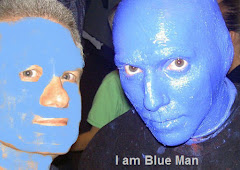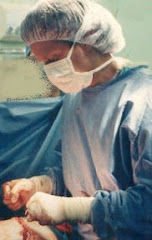Who we are, and how we respond to our environment as a living, breathing, interacting organism is a function of our nervous system. And that nervous system made of nerves, our spine and our brain is largely a function of chemicals...norepinephrine, epinephrine, serotonin and dopamine. So beyond limited therapies of counseling (a mainstay of psychiatric care), restraint (physical and chemical), and controversial surgical and electrical brain intervention; Psychiatry is largely an attempt to modify those chemicals. Today, 4 % of men and 10 % of women in this country are taking antidepressants at any given time according to Dr. Julian Whitaker.
So the day to day operations of a psychiatry office, and the function of a student in that environment, is the management of those drugs that attempt to modify those chemicals. The drug names of many, varied, and 
"The way to sell drugs is to sell psychiatric illness."----Dr. Carl Elliot, University of Minnesota Bioethicist (The Washington Post, 2001).
And while I feel well fed, and likely that some people actually need this care to survive life, much of what we do in psych is suspect at best and in some cases dangerous. Dr. Peter Breggin, M.D. says, "Going to a psychiatrist has become one of the most dangerous things a person can do", referring to the chemical approach to care.
And we continue to sell both disease and illness to a large percentage of "patients" walking thru the door, but the stories are largely of "life" and the stressors we encounter along the way. Has our ability to handle life and the massive stressors been exceeded or do we just look differently at that ability (and possible treatment)? It appears that current psychiatric practice is largely the latter.
"[W]e do not know the causes [of any mental disorder]. We don’t have the methods of ‘curing’ these illnesses yet.”----Dr. Rex Cowdry, director of the National Institute for Mental Health (NIMH), testimony before a House of Representatives Appropriations Committee Hearing
But there are some severely wounded people out there with real, significant and life strangling psychiatric issues. And it's those people that we daily struggle to help live a life with some quality and as few bumps, injuries and maladies as possible. And it's largely that hope that keeps the doors open, and the drug company lunches coming. We really want to help those in need, but we continue to invent, modify, and alter need. It is a grand experiment for sure.
"Anyone who goes to a psychiatrist ought to have his head examined."-- Samuel Goldwyn
"Biological psychology/psychiatry is a total perversion of medicine and science, and a fraud."— Neurologist Fred Baughman
"Psychiatry is probably the single most destructive force that has affected American Society within the last fifty years." – Dr. Thomas Szasz, Lifetime Fellow, American Psychiatric Association





